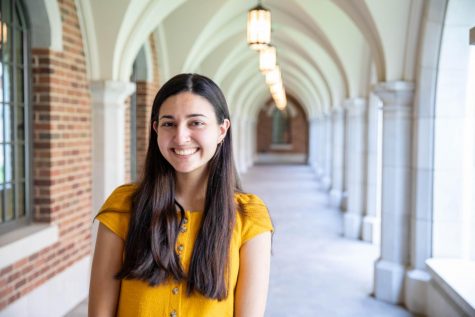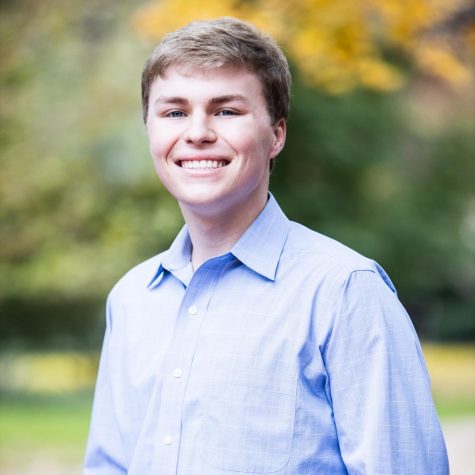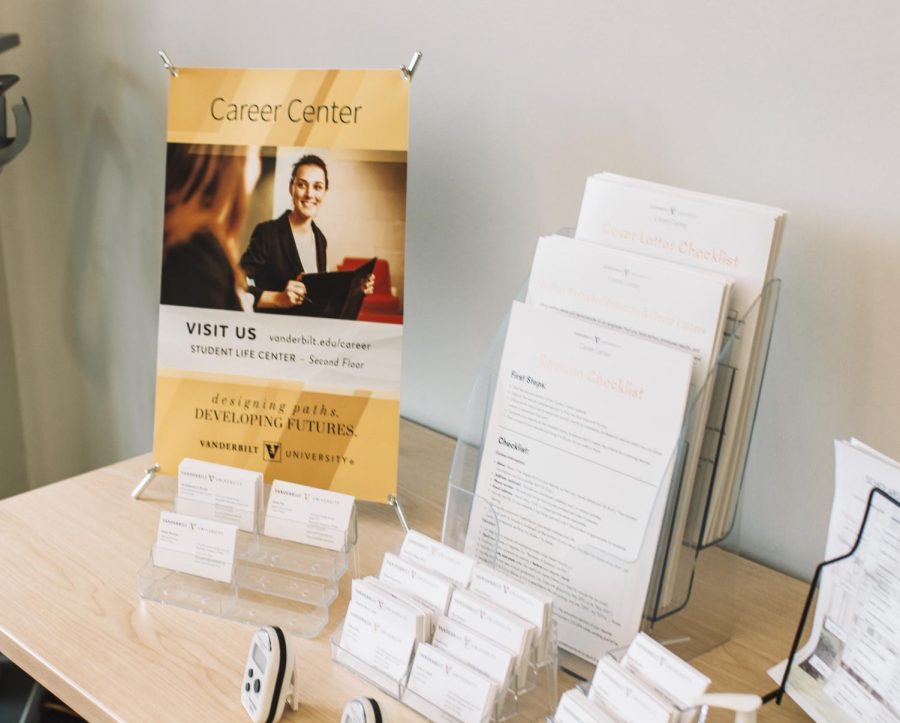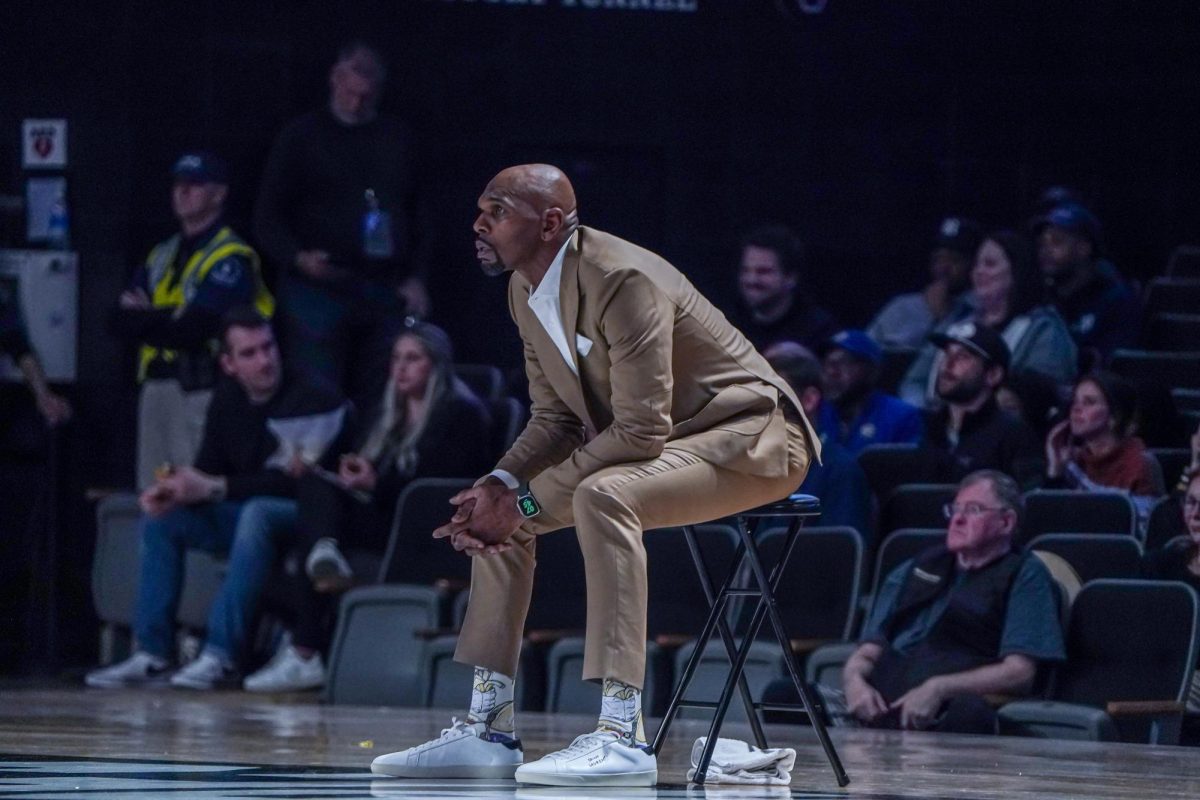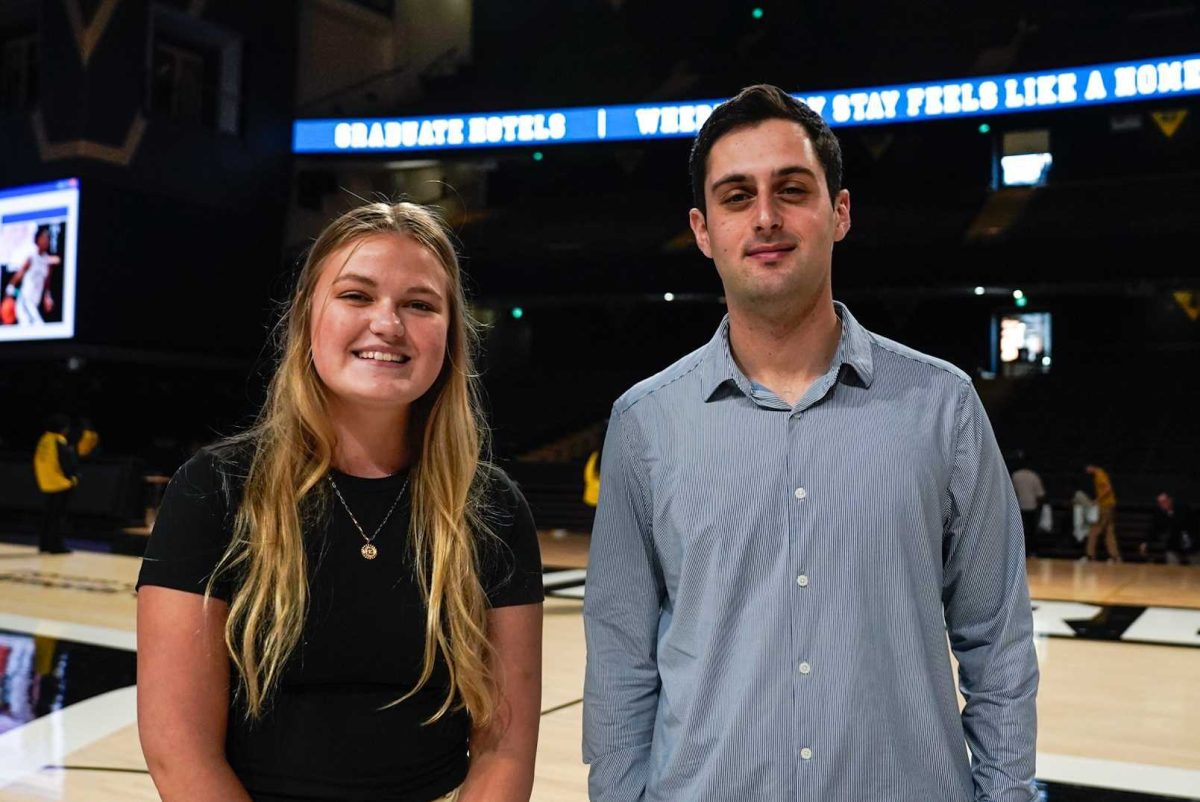As classes move into the final weeks of the semester, The Hustler checked in with professors from the four different academic schools to hear about their transitions to online learning that began March 16 for the remainder of the semester.
Professors forced to exercise creativity in reaching students
Professors across Vanderbilt’s four academic schools have made a diverse array of adjustments to their teaching models since the university’s transition to a virtual environment.
Professor Heather Lefkowitz of Peabody College’s Department of Human and Organizational Development has employed a hybrid of live and pre-recorded lectures; she made attendance of her Zoom lectures non-mandatory and recorded the lectures for students who could not attend the live video session. Lefkowitz intended for her hybrid model to satisfy students who enjoyed regular lectures but also to accommodate students who may reside in different time zones that make attendance of her live streams difficult.
Computer Science professor Gayathri Narasimham took a similar approach to Lefkowitz with recorded Zoom lectures. For the basic coding class she teaches, she lectures for about 15-20 minutes, and then the rest of the class is spent coding. The screen sharing feature on Zoom allows her to work with students on their code and troubleshoot solutions to problems as they come up in their code.
Narasimham also teaches a seminar course. The breakout room feature on Zoom allows students to work in smaller groups during class, and then come back together to discuss as a full class or present what they worked on as a group.
History professor Thomas Schwartz has chosen to use pre-recorded lectures for his lecture class. He’s also adjusted his tests to be entirely essay format, getting rid of a term definition portion.
For his smaller seminar course that is oriented on a research project, he has chosen a model reliant on one-on-one check ins with his students. Given the restriction on accessing library materials in person, he has also changed some of the requirements for the culminating project. For this seminar course, Schwartz has also created an option for students taking the course pass/fail that has reduced requirements.
Along with the other Blair professors, percussion professor Ji Hye Jung, has faced unique challenges in adopting her course to an online format.
“I think we were not prepared for this. Nobody was prepared for this. Especially in Blair,” she said.
When in-person classes are in session, students usually have one-on-one lessons with Jung. Recreating this aspect for students has been the most challenging part of transitioning to online, Jung said. Moving entirely to a Zoom session is far from fool-proof; varying internet speeds and connection quality makes it hard to give feedback on students’ playing. To get around this, Jung spends half of the one-on-one meetings on Skype, and for the other half of class, students record what they have been working on and send it to Jung.
For the studio session portion of class, rather than having students play together in a streamed video, Jung has been assigning reading and bringing in guest artists.
Professor Michelle Sulikowski of the Department of Chemistry echoed Jung’s account of the challenges of providing personalized student feedback over a virtual platform. Sulikowski teaches Organic Chemistry, and her in-person office hours were often filled with students inquiring about the nuances of various reactions and mechanisms. In anticipation that the demand for her office hours would persist during the virtual half of the semester, Sulikowski provided students with her personal phone number and encouraged her students to FaceTime her with questions.
How it’s going: What’s going well, and what’s not
Transitioning to online music lessons has been far from ideal for Jung. Jung and her colleagues have done online lessons before but never considered them an effective way to teach music.
“We all kind of looked at each other and were like ‘Yeah, this doesn’t really work.’ And we didn’t really include it in our teaching life,” she said.
Internet speed issues are just the tip of the iceberg when it comes to challenges facing streamed lessons. Conducting live music lessons with students is further complicated by the fact that not all students have their instruments at home.
“Adjusting what our goals for the semester are has been a challenge. Luckily all of my students have been very nice and good with meeting these challenges and following the new goals and staying positive,” Jung said.
Jung has found silver linings in the transition. She and her students have been forced to focus on technical aspects of their music, which is a good thing to come back to “once in a while,” she said. Furthermore, having students record their playing has been beneficial for students; students have said that they like that they can now go back and apply the feedback Jung provides to the music they submitted. This is easier to do with a recording.
Schwartz said that the move to pre-recorded lectures has really cramped his style. He much prefers lecturing in front of students who can react to class content, and of course, his jokes.
“I think the dirty little secret of most college professors, especially those that teach lecture classes like I do, is that we need an audience,” Schwartz said. “We like having a live audience there for us. It’s very hard for me to talk into my laptop and do a real lecture. I feel like I’m boring them silly.”
In contrast, Zoom and the various features available to professors have made the transition fairly seamless for Narasimham, the computer science professor. Zoom has worked really well for her, Narasimham said. While initially worried about what group work would look like in an online format, Zoom has enabled such collaboration to continue.
“I have had no issues basically,” she said.
Lefkowitz, who teaches Talent Management and Organizational Fit, has attested that the flexibility of her curriculum has eased her course’s transition to virtual learning. In fact, she has leveraged the overlap between her curriculum and the employment implications of the coronavirus pandemic to show students how to apply some of her class’ concepts. Lefkowitz has particularly enjoyed encouraging students to think about how to navigate job uncertainty and how to understand the future of work through the lens of the coronavirus.
Nonetheless, Lefkowitz expressed many of the same sentiments as Schwartz, emphasizing that she misses presenting in front of students and engaging in face-to-face student interactions.
Professors note additional challenges to faculty communication
Levels of interconnectedness within departments varies. For Jung, she’s found that she’s been incredibly connected with other colleagues in Blair, and the other professors have been a great resource for sharing tips. However, faculty meetings were cancelled, and she thinks they could be doing a better job checking in with each other.
Schwartz said that connection among faculty in the history department has been lacking thus far, and he has only connected with other friends in the department. However, he’s looking forward to a Zoom faculty meeting recently put on the calendar.
“I’ve felt a little cut off,” Schwartz said.
For Sulikowski, coordinating the grading of midterm exams for about one hundred students has presented a communication challenge entirely separate from the design of her virtual curriculum. Sulikowski normally utilizes TA graders and relies upon meetings with TAs for input about disputed questions. The transition to a virtual environment has disrupted her usual grading system entirely.
“It’s been difficult because normally, we have a meeting with the TAs beforehand to discuss grading, and we are present with them when they come up with questions to answers that we may not have thought of before, and we can have a face-to-face discussion,” Sulikowski said. “Now, there’s a real lag time there. It’s been detrimental, slowing things down.”
Sulikowski has compensated for these communication challenges by frequently FaceTiming her individual TA grader, but she reports the typical meetings with several TAs before exams have been difficult to replicate.
Despite the communication challenges, the rigor of the virtual transition has invoked a sense of solidarity and spurred active collaboration among professors in several departments. Sulikowski worked closely with Professor Alissa Hare—who teaches the second Organic Chemistry section—in the week before the commencement of online courses to discuss what’s most important for student learning and how to best deliver content to students.
Lefkowitz also noted that the professors in the Department of Human and Organizational Development relied upon one another to ensure each had a smooth transition to a virtual system. Lefkowitz especially applauded how the professors adept with technology support those who were less experienced with virtual systems.
Main impacts on students
Student learning will certainly be impacted by this transition to online learning, although how much students will feel the impact is still unclear, Jung said.
“I hope that we can all use this moment to rethink how we can do better when we come back,” she said.
Speaking personally, Jung noted that it’s harder to be motivated as a musician when all performances for the near future are pushed back, and it’s especially hard to make long term goals.
“What I’m trying to do is create short term goals that realistically, they make us go forward everyday; they make us get out of bed,” Jung said.
The quarantine has also created time for musicians like herself to develop hobbies, when there usually isn’t enough time to practice hobbies outside of their instruments. For Jung, that means spending time with her toddler, who popped in during our interview.
Schwartz, self proclaimed as “not a great believer in the future of online education,” is grateful that there was at least the first half of the semester for in-person lecturing because student learning is probably impacted in a negative way.
“I feel like they’re not getting as much out of it, you know, so much of it is the connection talking, but you know, the spur of the moment questions that are really hard to replicate online,” Schwartz said.
Narasimham also noted that being in person for the early part of the semester was critical for students in building trust relationships and getting used to professors’ style of teaching—things that may have been lost online. However, being online may have other effects, for example, one student has come to her and noted that it’s harder to learn without other students around and feeding off of their body language, she said.
Narasimham has also had to cut down on some material in her classes due to the loss of class time. Echoing Jung, she is unsure how big of an effect this will have on students, but there will certainly be some impact, she said.
“One of the things I have noticed is that a few students are very active, they’re engaging. A lot of students are zoning out,” Narasimham said, “I think the students who are not able to engage might have engaged more if they were in a face to face classroom. Online is a deterrent to that kind of participation.”
In contrast, Sulikowski has noted a boost in student receptiveness since the transition to a virtual course, suggesting that the new platform has mitigated some of the usual hurdles that bar student engagement.
“The students who came to office hours frequently before still contact me for office hours now, and I’m getting more interactions with students I didn’t have interactions with before because I think it feels a little safer to do it over email,” Sulikowski said.
Going forward, Sulikowski forecasts that her experience teaching in a virtual environment will augment her in-person course. In particular, Sulikowski is encouraged by the prospect of using screen-capture technology to cover concepts that students normally must learn on their own.
“There’s all the challenges, but then there’s things that we’re learning, and now we’re developing resources for students that we didn’t have before,” Sulikowski said.














